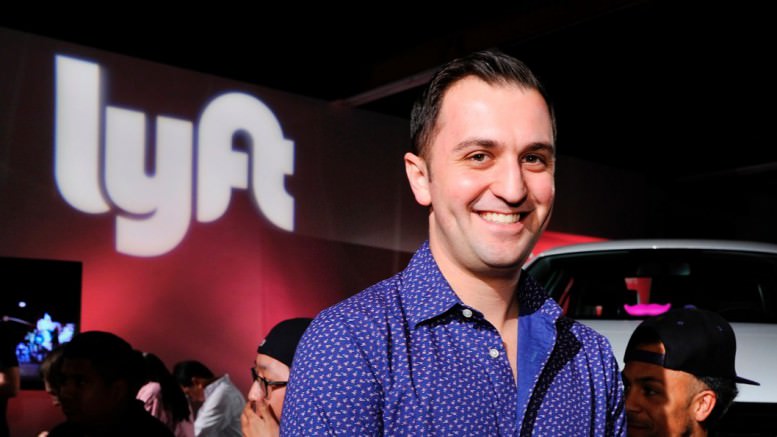SAN FRANCISCO (Reuters) – Ride-hailing service Lyft has agreed to settle a proposed class action lawsuit in California by giving drivers additional workplace protections but without classifying them as employees, according to a court filing late on Tuesday.
The settlement, which would have to be approved by a San Francisco federal judge, provides for Lyft to pay $12.25 million, as well as give drivers notice if they are to be deactivated from the platform and other benefits.
Lyft and larger rival Uber face separate lawsuits in San Francisco federal court, brought on behalf of drivers who contend they are employees and entitled to reimbursement for expenses including gas and vehicle maintenance. The drivers currently pay those costs themselves.
The cases have been closely followed because a determination that the workers are employees instead of contractors could affect the valuations for other startups that rely on large networks of individuals to provide rides, clean houses and other services.
Shannon Liss-Riordan, an attorney for the drivers, acknowledged that the settlement does not achieve a reclassification of drivers as employees, but said the benefits are still significant.
Unlike a separate lawsuit against Uber, which has been certified as a class action, Liss-Riordan said it would be very difficult for drivers to similarly sue Lyft as a group.
Additionally, Liss-Riordan said her firm receives many more complaints from Uber drivers about issues with their pay, and about being deactivated from the platform.
 Justin Sullivan/Getty ImagesA Lyft customer gets into a car on January 21, 2014 in San Francisco, California.
Justin Sullivan/Getty ImagesA Lyft customer gets into a car on January 21, 2014 in San Francisco, California.
“We have not been hearing so many concerns from Lyft drivers, which leads us to believe that Lyft is treating its drivers with more respect than Uber is treating its drivers,” Liss-Riordan said.
Uber representatives could not immediately be reached for comment. Uber is scheduled for a June trial in San Francisco on whether its drivers are employees or contractors.
As part of the settlement, Lyft has agreed that it can only deactivate drivers for specific reasons, like low passenger ratings. Drivers will be given an opportunity to address those issues before they are deactivated, according to the court filing.
Lyft general counsel Kristin Sverchek said the company is pleased to resolve the lawsuit on terms that “preserve the flexibility of drivers to control when, where, and for how long they drive on the platform.”
Here’s a statement on the settlement from Lyft:
Lyft announced today that it has reached an agreement, subject to court approval, that will fully resolve the Cotter v. Lyftclass action case pending in federal court in the Northern District of California before Judge Vince Chhabria. Plaintiffs filed a motion for preliminary approval with the court that seeks approval of a settlement agreement between plaintiffs and Lyft. Under the terms of the settlement, Lyft will make a total payment of $12.25 million, and make changes in its product and Terms of Service with drivers. However, the agreement does not make any change to the classification of Lyft’s California drivers who will continue to operate as independent contractors.
“We are pleased to have resolved this matter on terms that preserve the flexibility of drivers to control when, where and for how long they drive on the platform and enable consumers to continue benefitting from safe, affordable transportation,” said Kristin Sverchek, general counsel at Lyft. “Apart from this settlement, we continue to explore a variety of ways to provide services and support for our driver community, including the potential for portable benefits, because we believe it is important to preserve the flexibility drivers cherish while also strengthening their safety net.”
The settlement does not make any change to the classification of drivers who use the Lyft platform as independent contractors. Roughly 80 percent of drivers who use the Lyft platform drive 15 hours per week or less to supplement their incomes. As part of the agreement, Lyft will refine its product and Terms of Service (TOS) so as to continue to be consistent with the classification of drivers as contractors under California law. The settlement itself applies to drivers using the Lyft platform in California, however, the Company will make these TOS and product changes nationwide.
The changes include:
As part of Lyft’s commitment to supporting the driver community, Lyft provides affordable car rental rates, gas cards, instant payouts, as well as access to financial services and free tools to file taxes and evaluate health care options. Lyft also recently joined with 40 diverse organizations, labor advocates, and non-profits to announce a set of principles for the changing American workforce that are designed to meet the twin goals of preserving flexibility while also providing greater economic security.
(Reuters editing by Kenneth Maxwell and Miral Fahmy)
Read the original article on Reuters. Copyright 2016. Follow Reuters on Twitter.
Source: www.businessinsider.com




